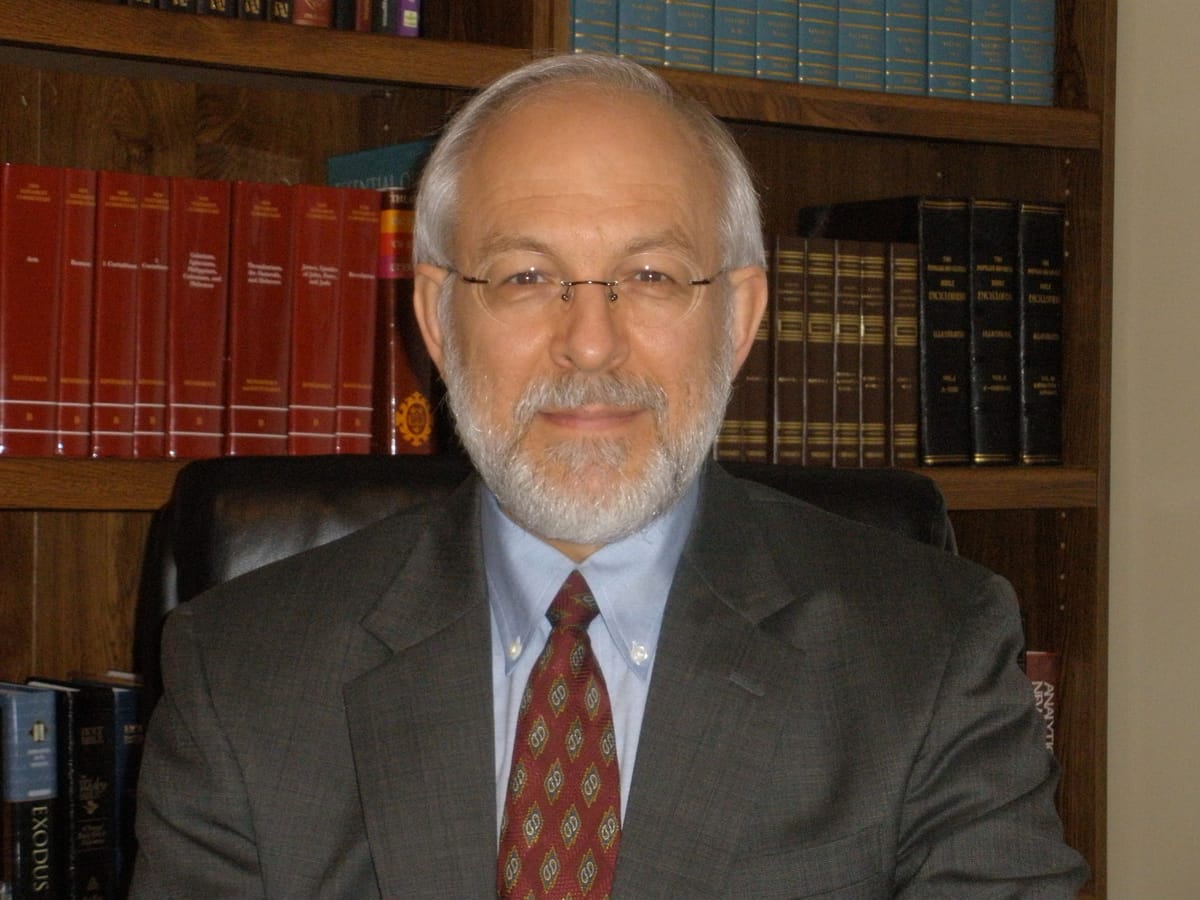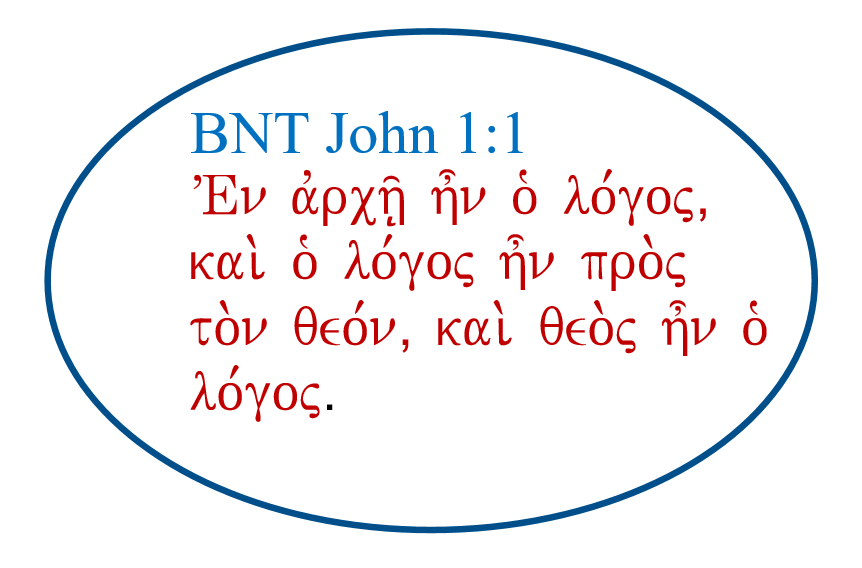Chapter 1, Section 2: Introduction and Conclusion
Let me proceed with an outline and a summary, to give you the scope of what we will be delving into in the remainder of this book. This scope is not necessarily in any order and it is certainly not all-inclusive. However, to give you an idea of what we are going to cover, we will be talking about people, places, things, ideas, doctrines, and theories.
Things: Some of the things we will discuss are manuscripts, codices, cursives, uncials, and texts of the Bible.
(I will define these later. And do not be concerned if you do not know Greek, Hebrew, Aramaic, Latin or any other foreign languages. This study is meant for the general reader. Nonetheless, we hope it will be of benefit to Bible scholars also who may not be familiar with the information we shall be setting forth.)
We will consider the original manuscripts and copies of the original manuscripts. We are going to discuss the texts, which underlie the various versions of our modern Bibles, and by modern, I mean from the Reformation forward.
We will talk about the Textus Receptus, the Vaticanus, and the Sinaiticus, the latter two which are otherwise known in many footnotes as the “oldest and best” manuscripts. I am not necessarily saying that I agree with that characterization, but that term is what some ordinary Christians are taught and which some Bible scholars have declared.
We will be discussing the Syriac and the Peshitta manuscripts as well as the Masoretic, the Bomberg, the Ben Chayyim texts, and the Nestle-Aland-Metzger texts, etc. We will be reviewing other ancient manuscripts and books, including the Dead Sea Scrolls, the Septuagint, the Apocrypha, the so-called Forgotten Books of Eden, and the so-called Lost Books of the Bible, as well as a body of literature simply called Pseudepigrapha. We will be considering the Latin Vulgate and the Geneva Bible, among many others.
Places: We will be talking about places where important events occurred, and how we came to get the Bible we have today. In this mental pursuit, we will journey to a multitude of places, from ancient times until now: from Jerusalem to Babylon; from Antioch to Alexandria, Egypt; from Rome to Russia; from America and the Christian-European Occident to China, India, the Himalayas and the Hindu and Buddhist Orient.
We will dip lightly (for now) into the world of Islam, to the dusty deserts of the Sinai Peninsula, to the world of Judaism, and to the steppes of Southern Russia, where the Khazar Empire once flourished.
People: We will be learning about a broad range of people who have had an influence on the Bible versions we discuss. The characters that we will meet in this journey will be both generally good and others not so good, and/or apparently evil (judging by their fruit), while still others we cannot readily discern, but they have all had an effect on our Bible versions.
To mention just a few of the names at the outset, some of whom you may have familiarity, and others who might be totally new to you. We will be examining the lives and works of Bishop Brooke Foss Westcott and Dr. Fenton John Anthony Hort, simply known as Westcott and Hort. These churchmen lived in the 1800s and are key players in this entire matter of Bible versions.
We will be discussing ancient luminaries: obviously Christ Himself, and many of the human Bible writers and Bible characters and scholars, including Josephus, Philo, Origen, Clement, Jerome, and many other of the early church fathers.
We will be coming forward through time to the Reformation, where we find Wycliffe, Tyndale, Luther, Calvin, and many others who made God’s All-Star Team during that era.
In the last couple of centuries, in addition to Westcott and Hort, we will be talking about Dean John William Burgon, Frederick Kenyon, Constantin von Tischendorf, Alfred Gesenius, Joseph Thayer, and Karl Lachmann from the nineteenth century (not Lockman as in Lockman Foundation which owns the copyright to the New American Standard Version).
We shall also learn about the Russian Dr. Ivan Panin and his work with Bible numerics. Not to be left out is the American “Dr.” Cyrus Ingerson Scofield. Many decades ago, when I first “got saved” in a fundamentalist church in Columbus, Ohio, I was advised that I needed to use the Scofield Bible.
We will be discussing Cyrus Ingerson Scofield because he has had a transformative effect on modern Christianity since the publication of what was originally called the Scofield Reference Bible, but is now called the Scofield Study Bible.
Then, too, we will be perusing many concepts, ideas, doctrines, and theories related to Bible translations, including methods of translation: word-for-word, formal equivalency, dynamic equivalency, and periphrastic (meaning paraphrase).
We will be learning about how we got the Bible we have in English today, about the canon of the Bible, including which books were put into the Bible, when they were put in, how, why, and in what order. We will also be addressing Bible criticism.
Bible criticism in this context is not referring to someone who says the Bible is a bunch of garbage, but rather it is about Textual Criticism, which is a scholarly pursuit. We will examine Higher Criticism and the alleged discrepancies and errors in the Bible.
Moreover, we will be making specific comments about various versions in use today, including all those that many of you use or possess in your homes: The Living Bible, various sacred name Bibles, such as the Holy Name Version, the Ferrar Fenton version, the NIV, the NASB, The Jerusalem Bible, etc.
We will be examining the political and occult connections between certain Bible translators, the New Age Movement, and a one-world religion. Finally, but yet of some importance, we are hopefully going to answer to every reader’s satisfaction the most important question in this whole book; namely, was King James I (for whom the King James Version is named) a homosexual? (I am being sarcastic, because that question seems to be very important in the minds of some people.)
The conclusion of my four years of study is very simple. My purpose is not to make a game of this, so that is why I am giving you my conclusion here in the Introduction. In the remaining chapters, I will show you how I arrived at these conclusions, and you can take it for what it is worth to you.
Above all, do you own study. Be a Berean. Check me out. Agree with me, or disagree with me. I realize that anyone who takes a stand will be pelted with tomatoes from one side or the other and sometimes from both.
Those who have already made up their minds and hold a different viewpoint from mine will throw their tomatoes by simply putting the book down and not picking it up again. To them I would simply point out this Proverb:
Proverbs 18:13 He that answereth a matter before he heareth it, it is folly and shame unto him.
It is very easy to read one or two books on one side of the question and think that the case is pretty cut and dried. However, if you are intellectually honest, you will not fear to look at what those with opposing viewpoints have to offer.
One other point: You do not have to be a university-accredited scholar to find the truth in this matter. If you know how to read, or maybe you prefer to listen to lectures on this subject (from digital media such as CDs or mp3s, for example); and if your heart is right, then I believe that God will reveal His truth about His Word to you.
So do not fret if you do not know Greek and Hebrew and therefore you think that you must defer an opinion on this matter to the so-called experts. You do not need to defer. For the record let me state that I am no expert in any language except English.
I do claim expertise in English because I have been, throughout my schooling, an excellent writer, from grade school through the Ohio State University where my major was Broadcast Journalism and Public Relations. I graduated cum laude (which would have probably been summa cum laude had I not wasted my first quarter or two fooling around, and subsequently I did not get straight A’s in my freshman year).
I do not claim expertise in any foreign language (although I received excellent grades in all the following:) I have had four years of Latin (and won the school’s Latin award for best Latin student in my junior and senior years at the Roman Catholic seminary boarding school.
I also have had two years of French and two years of German. In the early 1990s I had the blessing of being tutored privately for three years in biblical Greek, and one year in biblical Hebrew, from a man who was a Professor of Biblical Languages here locally.
I also had one semester of Spanish with my son when he was a teenager and being homeschooled. He lost interest in it and thus we did not continue.
To repeat, I do not claim expertise in any of the foreign languages, nor do readers need to be conversant in any of them. We give thanks to God for the vast array of Bible tools now available digitally where one can work with the Hebrew and Greek, if so desired, without needing academic training to do so. But again, that will not be necessary for understanding what we shall be teaching in this book concerning which Bible or which version.
So now, drum roll, please… The results of my studies over a four-year period have led me to conclude that I ought to be teaching from the King James Version of the Bible. However, I will be quick to add that one should not draw the conclusion from that statement that I am a “King James-only” proponent.
These my conclusions date back to the early to mid-1990s when I first delivered this material in a series of lectures to our Stone Kingdom Ministries fellowship groups in Tennessee and Georgia.
Since that time my conclusions have not wavered, but have only grown stronger, despite being the target of some rather vicious verbal attacks from ministers who were once my friends. One in particular was sad and distressing. But this minister actually never really heard or read most of these lectures.
He told me that he did, but he had actually hired a man to listen to all of them for him, and to make notes on where he could attack me, which he did in a series of eleven sermons. Unfortunately, in his sermons he lied and misrepresented my positions greatly, one of which was to claim that I was KJ-only and believed that the KJV was inspired in the English language.
(I know all this to be fact because I was told of it by his wife, who was present and heard him claim to me that he had listened to all of my series on Bible versions. She told me he had actually only listened to three out of the twenty lectures. She was quite embarrassed by her husband’s tactics toward me. God rest their souls; both are now deceased. I am sure we will all laugh together about it in the resurrection.)
If you believe that this study may have some merit for you, read on. When we continue, we shall begin by exploring one of the most fundamental doctrines intertwined in this whole question of Bible versions; namely, the doctrine of the inspiration of the Holy Scriptures.
(To be continued.)
~END~


